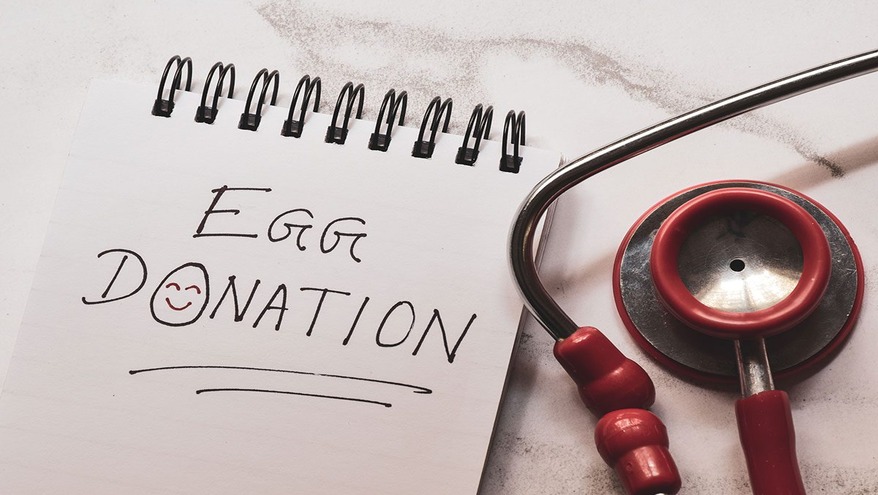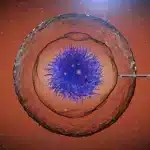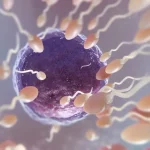
Egg donation is a noble and altruistic act that allows individuals or couples struggling with fertility issues to realize their dreams of parenthood. As more people turn to assisted reproductive technologies, it’s essential to have a comprehensive understanding of the egg donation procedure, including its duration. In this blog, we will delve into the various stages of egg donation, shedding light on the time commitment involved in this remarkable process.
Preparing for Egg Donation
Before delving into the egg donation procedure itself, it’s crucial to recognize the preparatory steps that both the egg donor and the intended parents undergo.
Screening and Evaluation (Days 1-30)
The initial phase involves an in-depth screening and evaluation process for the egg donor. This can take anywhere from a few days to several weeks. The screening includes thorough medical, genetic, and psychological assessments to ensure the donor’s overall health and suitability for the procedure. Simultaneously, intended parents may undergo screenings to address any potential health concerns or genetic predispositions.
Legal and Financial Considerations (Days 31-45)
Once the screenings are successfully completed, the legal and financial aspects come into play. Contracts are drawn up, clearly outlining the rights, responsibilities, and expectations of all parties involved. Legal consultations and negotiations can take a couple of weeks to ensure that everyone is on the same page.
Stimulation and Monitoring
With the preparatory stages complete, the egg donation process moves on to the stimulation phase, during which the egg donor’s ovaries are stimulated to produce multiple eggs.
Ovarian Stimulation (Days 46-60)
The donor typically undergoes hormone injections to stimulate the ovaries for about 10 to 12 days. Frequent monitoring through blood tests and ultrasounds ensures the optimal response to the medications. This phase is critical in maximizing the number of mature eggs retrieved.
Egg Retrieval Preparation (Days 61-65)
As the stimulation phase concludes, preparations are made for the egg retrieval procedure. This involves a trigger shot to induce final egg maturation. The timing of the trigger shot is carefully planned to synchronize with the optimal stage of egg development.
Egg Retrieval
The culmination of the egg donation process is the retrieval of mature eggs from the donor’s ovaries.
Egg Retrieval Procedure (Day 66)
The actual egg retrieval is a minimally invasive outpatient procedure performed under sedation. It typically takes about 20 to 30 minutes. A needle is inserted through the vaginal wall into the ovaries to aspirate the mature eggs. Recovery time is relatively short, with donors often able to resume their normal activities within a day or two.
Post-Retrieval and Post-Procedure
While the actual retrieval marks the conclusion of the physical aspect of the egg donation process, there are still important steps to be taken afterward.
Recovery and Follow-up (Days 67-70)
The egg donor is monitored for a short period after the retrieval to ensure a smooth recovery. Follow-up appointments may include additional ultrasounds and blood tests to confirm that the donor is healing well and to address any potential concerns.
Fertilization and Embryo Transfer (Days 71-80)
The retrieved eggs are fertilized with the intended parent’s sperm, and the resulting embryos are cultured for a few days. The healthiest embryos are then selected for transfer to the uterus of the intended parent or surrogate, marking a crucial step in the overall assisted reproductive process.
Considerations and Emotional Aspects
Beyond the technicalities of the egg donation procedure, it is essential to consider the emotional aspects for both the egg donor and intended parents.
Emotional Preparedness (Days 1-80)
The emotional journey of egg donation begins with the decision to embark on this path. For donors, it’s a selfless act that requires careful consideration of the emotional impact. Likewise, intended parents navigate the complex emotions associated with fertility challenges and the hope that egg donation brings. Support networks, counseling, and open communication play pivotal roles during this period.
Bonding and Relationships (Days 81-100)
Throughout the process, a unique bond may develop between the egg donor and intended parents, especially if an open or semi-open donation arrangement is chosen. Establishing clear expectations and boundaries early on can contribute to a positive experience for all parties involved.
Post-Procedure Considerations
As the egg donation procedure concludes, attention shifts to post-procedure care and ongoing support.
Waiting Period (Days 101-120)
After the embryo transfer, a waiting period ensues as intended parents anticipate the results of the procedure. This period can be emotionally charged, emphasizing the importance of supportive networks and counseling services to navigate the anxieties and uncertainties associated with the assisted reproductive process.
Pregnancy and Beyond (Day 121 onwards)
Upon a successful embryo transfer, the focus shifts to the pregnancy and the impending joy of parenthood. Continued support, both emotional and medical, ensures a smooth transition into this new phase. For egg donors, witnessing the positive outcome of their contribution can be emotionally rewarding, marking the culmination of their altruistic journey.
The Ever-evolving Landscape of Egg Donation
It’s crucial to acknowledge that the field of assisted reproductive technology is dynamic, with ongoing advancements shaping the egg donation process.
Technological Innovations and Future Prospects
As technology progresses, innovations such as vitrification and genetic testing contribute to increased success rates and improved outcomes. Stay informed about emerging technologies and advancements that may impact the duration and efficiency of the egg donation procedure.
Legal and Ethical Considerations
The legal and ethical landscape surrounding egg donation is continuously evolving. Staying abreast of changes in regulations, ethical guidelines, and societal perspectives is essential for all parties involved in the egg donation process.
Frequently Asked Questions (FAQs)
Q: How long does the egg donation procedure typically take?
A: The egg donation process spans approximately 80 days, from initial screenings to embryo transfer. Timelines can vary, but this duration provides a general framework for the comprehensive procedure.
Q: What are the eligibility criteria for becoming an egg donor?
A: Eligibility criteria include good physical and mental health, age between 21 and 32, and a willingness to commit to the entire process. Potential donors undergo thorough medical, genetic, and psychological screenings.
Q: Is egg donation a painful process for the donor?
A: The egg retrieval procedure is typically performed under sedation, minimizing discomfort. Donors can expect short recovery times, often resuming normal activities within a day.
Q: Can donors choose to remain anonymous?
A: Donor anonymity is possible, but it depends on the specific arrangements made with the intended parents. Some donors prefer open or semi-open arrangements, fostering communication and potential relationships.
Q: What role does the legal process play in egg donation?
A: Legal considerations are crucial. Contracts outlining rights, responsibilities, and expectations are drafted, ensuring a clear understanding between donors and intended parents. Legal consultations and negotiations occur during the preparatory stages of the egg donation process.
Conclusion
In conclusion, the egg donation procedure involves a series of meticulously planned stages, each contributing to the success of the assisted reproductive journey. While the timeline can vary, encompassing approximately 80 days from the initial screenings to the embryo transfer, the ultimate reward is the opportunity for individuals or couples to experience the joy of parenthood. As medical technology continues to advance, the duration of the egg donation process may evolve, but the gift of life and the impact on families remain at its core.
Should you have any questions or concerns as an intended parent, please do not hesitate to contact us at 212-661-7177 or info@eggdonors4all.com

Dr. Kulsoom Baloch
Dr. Kulsoom Baloch is a dedicated donor coordinator at Indian Egg Donors, leveraging her extensive background in medicine and public health. She holds an MBBS from Ziauddin University, Pakistan, and an MPH from Hofstra University, New York. With three years of clinical experience at prominent hospitals in Karachi, Pakistan, Dr. Baloch has honed her skills in patient care and medical research.











